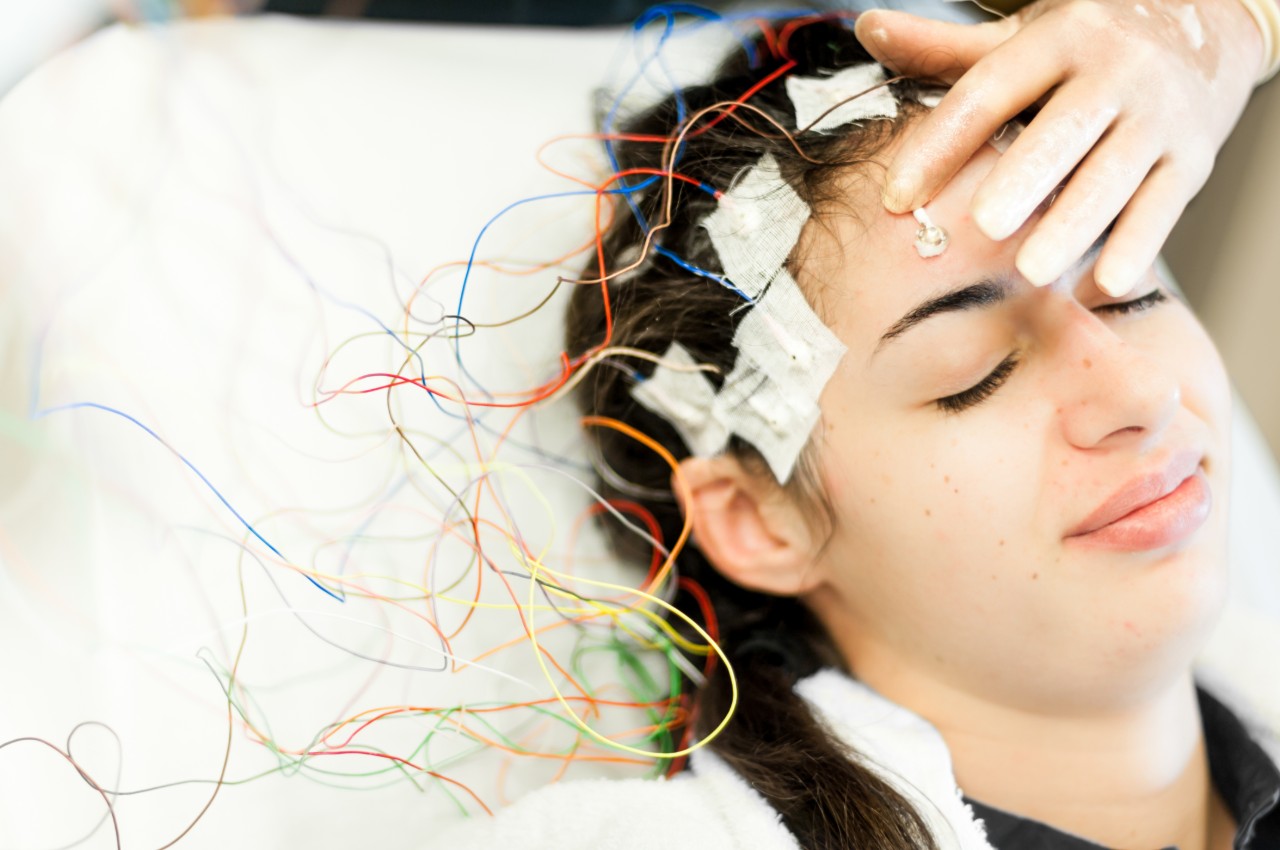
Diagnosis
Anyone can have a one-off seizure, but this doesn’t always mean they have epilepsy. To diagnose epilepsy, doctors will want to know what happens when you have a seizure.
Fast facts
-
1There is no single test for diagnosing epilepsy
-
2Tests used to help diagnose epilepsy include: blood tests, EEGs and MRI scans. Sometimes tests are done to rule out other conditions, such as a ECG to rule out heart problems
-
3If you have a normal EEG or MRI scan you may still have epilepsy
-
4Epilepsy can be difficult to diagnose. It might take some time for a diagnosis to be confirmed
-
5There are lots of types of epilepsy and seizures
-
6Some types of epilepsy are part of a syndrome (there’s more about epilepsy syndromes below)
-
7For most people there is no explanation for why they get epilepsy
The number of people aged 25 and under with epilepsy, is approximately 1 in 177
Some facts about epilepsy...
-
How many people in the UK have epilepsy?
More than 600,000 people in the UK have epilepsy
-
Who gets epilepsy?
Anyone can be diagnosed with epilepsy, at any age
-
What is epilepsy?
Epilepsy is a condition that affects the brain.
Having epilepsy is the tendency to have epileptic seizures.
What are seizures?
Epileptic seizures are a sudden burst of electrical activity in the brain, creating a temporary disruption of the normal messages in the brain. A seizure can cause changes in somebody’s movements, awareness, behaviour, emotions or senses or all of the above.
What causes epilepsy?
In most cases, it’s not clear why epilepsy happens. Sometimes a cause is found, it might be a head injury, a brain infection like meningitis and some types of epilepsy are linked to our genes. Often the cause is not known.
Top tips
- Having a description of your seizures, how they make you feel and when they happened is helpful information for doctors. Ask people who have seen your seizures to help with a description of what happens
- Getting someone you trust to take a video of your seizures and showing this to the doctor can help them make a diagnosis
- If you have been diagnosed with epilepsy, have a list of questions ready to ask your epilepsy doctor
- If you’ve had an EEG, afterwards there will be glue left on your head. Hair conditioner can help to get it off
- Talk to other people with epilepsy. You do not need to feel alone
- Find out about epilepsy from reliable information sources (such as this website)

Epilepsy syndromes
Some types of epilepsy are part of a syndrome. A syndrome is a group of signs and symptoms that, added together, suggest a particular condition.
Examples of the signs and symptoms are things like:
- The age your seizures begin
- The type of seizures you have
- If you are male or female
- If you have learning difficulties
There are lots of different epilepsy syndromes. Your epilepsy doctor should tell you if you have a syndrome. Some syndromes that are more common in young people include:
- Childhood absence epilepsy
- Juvenile absence epilepsy
- Juvenile myoclonic epilepsy (JME)
Watch
Find out how being diagnosed with epilepsy felt for these people
Stories by you
These young people have shared their experiences and memories of getting diagnosed with epilepsy.
- Rachel tells her story of getting diagnosed with focal seizures and what a relief it was
- Adam tells the story of his first seizure and diagnosis while on a skiing holiday in France
- Read Kelsey’s story about being diagnosed twice
- Paige was diagnosed at 21 and missed her own birthday party
- Ally started having seizures during the run up to her A-level exams
- Charlotte has multiple seizure types and other conditions – it’s complicated
- Anky was diagnosed after a brain injury when she was only 7 months old
- Aimee was diagnosed when she was 11, read about her journey through diagnosis
- Brooke’s diagnosis story explains that while epilepsy might change some things, she is still the same person
- Read how Paddy moved forward after getting diagnosed with epilepsy

Do something
Do you know anyone else with epilepsy? If not try looking for groups local to you or search for online forums where you could talk to others with epilepsy.
There some suggestions for connecting with others who have epilepsy on the connect with other young people page







